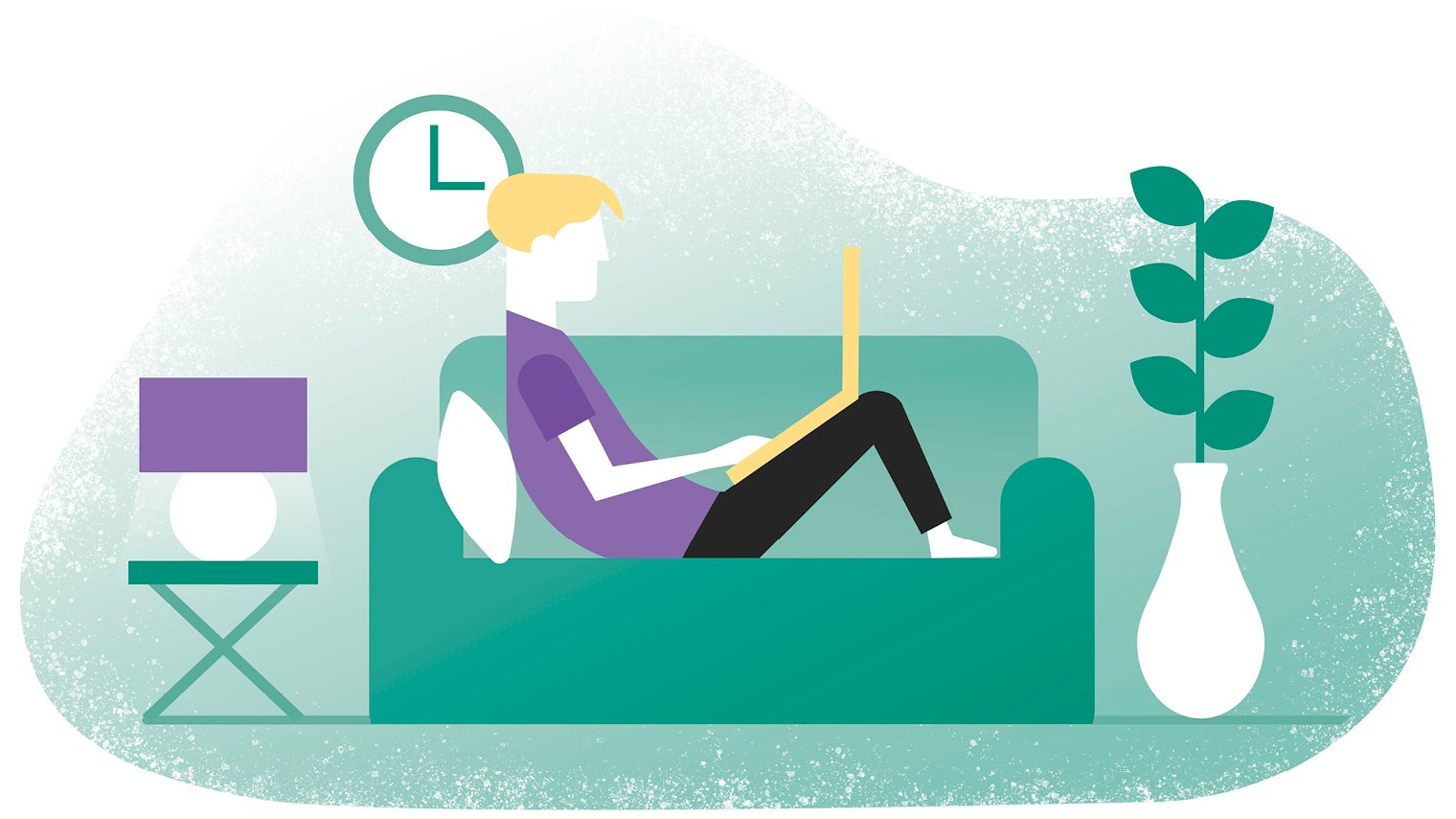1. More hours in the office boosts productivity
Spending more time at work isn’t a guarantee you’ll get more done or be more satisfied, says the Institute for Employment Studies. Working longer can, in fact, lead to greater operational costs and negative health effects, such as sleep deprivation, which can threaten productivity.
“There’s still a big issue with ‘coat on chair’ - the longer you’re there, the harder you’re working,” says Lizzie Penny, co-founder of the Hoxby Collective, which has no central office. “Our people work when they feel most productive and trust they are measured on output and outcomes rather than the minutes they’re at work.”
2. Open plan offices encourage more interaction
With no cubicles or walls to divide staff, open plan offices were intended to increase collaboration within teams and workplaces. But a 2018 study from researchers at Harvard University suggests the design could be counterproductive. Comparing the experiences of employees at two Fortune 500 companies before and after a move to open plan, the researchers found that face-to-face time between employees decreased by around 70% while the use of email increased in the range of 22-50%.
3. AI will take our jobs
Advances in technology threaten certain types of job but also bring new opportunities. AI-assisted analysis of employee data can help build better benefit packages, for example, while improvements in online communication and meeting tools can support more remote and flexible working.
Emerging technologies will create new jobs and bring human skills to the forefront of work. Yet, according to Deloitte, the newest generation of workers feels unprepared for the changes the Fourth Industrial Revolution will bring: fewer than three in ten of Generation Z currently in work feel they have the necessary skills and knowledge.

4. Higher salaries mean happier staff
Remuneration is, of course, important when it comes to staff satisfaction but it’s not the only thing that motivates today’s workforce. A good working environment, commitment to social goals and the wellbeing of the workforce are all increasingly cited as more important to employee contentment than a pay rise.
Research by academics from the universities of Sussex, East Anglia and Sheffield suggests that performance-related pay rather than profit-related pay is more beneficial to job satisfaction, trust in the business and commitment to an organisation. Ultimately, greater personalisation of rewards and compensation will help get the best from employees.
5. All work happens at the desk
This is an outdated misconception, says Zoe Humphries, senior workplace consultant at Steelcase: “Work can happen in many places since it’s not just typing and looking at a screen. As technology evolves, the reliance on the desk will diminish as people require new postures to interact with their tools and colleagues.”
According to Gallup, 43% of US workers already work remotely some of the time. Employers need to think how to support dispersed teams and how this might change office design. “In Slack we have the boardroom, the classroom, the water cooler,” explains Ms Penny. “It’s quite a leap to have an entirely remote workforce - you have to start with something familiar.”
1. More hours in the office boosts productivity
2. Open plan offices encourage more interaction
3. AI will take our jobs

